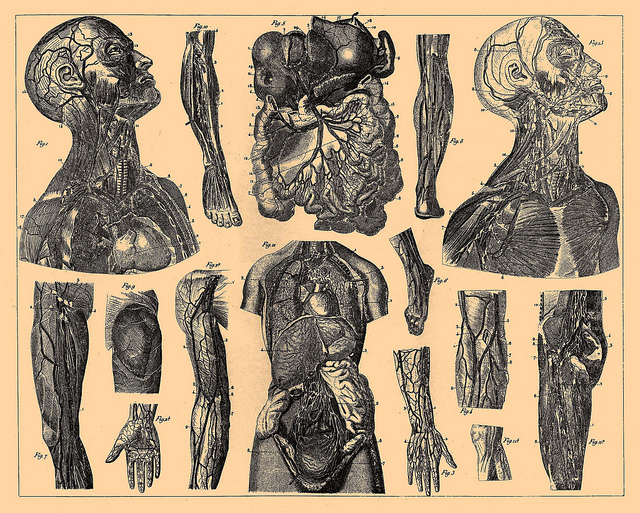
Property Rights in the Human Body
July 12, 2013
When Does Bullying Become Harassment?
July 22, 2013Article 101(1) of the Treaty on the Functioning of the European Union prohibits:
All agreements between undertakings, decisions by associations of undertakings and concerted practices which may affect trade between Member States and which have as their object or effect the prevention, restriction or distortion of competition within the internal market.
Article 101(1)(a)-(e) provides a non-exhaustive list of examples of types of agreements covered by Article 101(1). It is primarily aimed at classic cartels, known as horizontal competition, but it is also designed to deal with restrictive agreements between manufacturers and retailers, known as vertical competition, which affects the availability of goods and services.
The EU Commission investigates possible breaches of Article 101. Any undertakings which come to a price fixing agreement will be fined a huge amount by the Commission. Article 101(2) states that a violation has occurred unless it meets the criterion given in Article 101(3). The TFEU does not actually define the term ‘undertakings’, but this has been interpreted broadly to include natural and legal persons engaged in commercial activity for the provision of goods and services.
Cartels
Anti-competition arrangements sometimes operate within cartels on the basis of agreements. Typically, cartel members meet secretly to discuss prices or to exchange sales or trading information. Their activity may be sustained over long periods, often many years. The reason for the existence of cartels in the first place is that they are mutually beneficial. If a company in the cartel gives them up in an investigation and provides evidence of a price fixing agreement to the EU Commission, that ‘whistle blower’ will receive no fine whilst the others will. This lenient policy pushes one of the cartel members to give up.
In terms of investigation, the EU Commission has jurisdiction to investigate any premises anywhere in the EU, whether it shall be an on-the-spot search or not. However, premises outside the EU, whether or not they are EU companies, are not subject to the jurisdiction of the Commission. According to UK law, the Enterprise Act 2002 states that if you run a cartel, you could be jailed or disqualified from your directive position.
Agreements
Agreements are not only confined to binding contracts of whatever kind but also include understandings and the so-called, informal ‘gentleman’s agreement’ as seen in C-41/69 Chemiefarma v Commission of the European Communities [1970] ECR 661. This is backed only by the integrity of the counter-party to actually abide by the terms of the agreement. Hence, there is no legally binding document for any of the parties to later rely on.
The broad scope of Article 101(1) incorporating not only ‘agreements’ but also the much less formal ‘concerted practice’ means that it is unnecessary to identify the precise boundaries of ‘agreements’. The type of loose arrangements that may fall foul of Article 101(1) is demonstrated in C-32/78 and 36-82/78 BMW Belgium v Commission of the European Communities [1979] ECR 2435 where the court stated that signing and returning a copy of a document, not a contractual document, amounted to an agreement. The scope of ‘agreement’ was further considered in T-148/89 Trefilenrope SARL v Commission [1995] ECR II-1063 where the General Court declared that:
Agreements are not only confined to binding contracts of whatever kind but also include understandings and the so-called, informal ‘gentleman’s agreement’…
…for there to be an agreement within the meaning of…[Article 101(1) TFEU], it is sufficient for the undertakings in question to have expressed their joint intention to conduct themselves in the market in a particular way.
In the case of T-8/89 DSM NV v the Commission (Polypropylene) [1991] ECR II-1833, the EU Commission investigated a complex cartel agreement of 15 firms over many years. This constituted one agreement. The arrangement was oral with no contract or documents to prove the existence of the cartel. However, all the companies had a ‘joint intention’ to establish the single overall agreement, therefore there was a breach of Article 101. Even though not all the firms attended all the cartel meetings, they were part of the overall agreement. This illustrates that participation in the overall agreement is enough to prove your guilt.
Decisions by an association of undertakings
The commonest kind of decisions with which Article 101(1) is aimed are those of trade associations which lay down standards for the activities of its members. Standardisation of pricing or the way in which a service may be supplied may well fall foul of the provisions in Article 101. Even an agreement to supply information about sales by competitors, although not concerned with price fixing or any anti-competitive arrangements, may breach Article 101 since it could enable the dominant suppliers to adopt strategies to resist market penetration by those competitors. The body concerned does not, however, have to be engaged in commercial activity. In Cases 96-102, 104-106, 86 and 110/82 IAZ International Belgium NV v Commission [1983] ECR 3369, it was held that
…a recommendation, even if it has no binding effect, cannot escape Article 101(1) where compliance with the recommendation by the undertaking to which it is addressed has an appreciable influence in the market in question.
However, the Court of Justice has recognised in C-153/93 Germany v Delta [1994] ECR I-2517 that there is a boundary to the application of Article 101 where the nominees of a trade association concerned with the price fixing were genuinely independent of their parent bodies.
Concerted practices
Like ‘agreement’ and ‘decisions’, concerted practices have been interpreted broadly, though the outer limits of this concept have proved difficult to identify. Its meaning was first considered in Case 48/69 Imperial Chemical Industries Ltd. v Commission (Dyestuffs) [1972] ECR 619. The Commission concluded there was a concerted practice between the undertakings and imposed a fine on them. As a result, the undertakings challenged the Commission’s decision, arguing that the price increases merely reflected parallel behaviour in an oligopolistic market where each producer followed the price leader. The Court of Justice defined the term ‘concerted practice’ as:
…a form of coordination between undertakings which, without having reached the stage where an agreement properly so-called has been concluded, knowingly substitutes practical cooperation between them for the risks of competition.
The court’s approach to parallel behaviour in an oligopolistic market is controversial, as it will generally be difficult to determine with any certainty what the normal conditions of the market are. Hence, it was held that there was evidence of a concerted practice which breached Article 101.
A concerted practice is difficult to prove and the mere fact of parallel price increases are not conclusive. There must be a precise and consistent body of evidence to justify the finding of a concerted practice. In Case C-47/09 T-Mobile Netherlands BV and Others, the Court of Justice held that a single meeting between companies may constitute a concerted practice. In addition, Cases 40/73 Suiker Unie and others v Commission [1975] ECR 1663 (the Sugar Cartel case) states that a concerted practice need not be verbal or in writing, and can be direct or indirect.
Horizontal and vertical agreements
Article 101(1) applies to both vertical and horizontal agreements. Horizontal agreements are concluded between parties operating at the same level of the production/distribution chain, for example, between manufacturers or retailers. Vertical agreements operate at different levels, for example, distribution agreements between a manufacturer and distributor.
In the Sugar Cartel case and Chemiefarma, trade was affected and the effect of these horizontal agreements is to deny consumers. In relation to vertical agreements, in C-6 and 58/64 Consten and Grundig v Commission [1966] ECR 299 it was held by the Court of Justice that it was not necessary to wait to see if trade was in fact affected in the way that the agreement intended. The court stated there is no need to take into account the concrete effect of an agreement once it appears that it has as its object the prevention, restriction or distortion of competition.
The effect of this case applies not only to competing undertakings on a horizontal level, but also to vertical agreements between companies which are not themselves competing with each other, but aim to exclude competitors from the internal market.
Exceptions: Article 101(3)
Not all agreements that effect trading relations between undertakings will breach Article 101(1). Clearly, the exemptions under Article 101(3) recognise that the potential restrictive effect of some agreements may be outweighed by their beneficial interest. Furthermore, the case of T-102/92 Viho Europe BV v Commission [1995] ECR II-17 stated that Article 101 does not apply to the relationship between the subsidiary and the parent company with which it forms an economic unit, only to undertakings.
The non-exhaustive list of Article 101(3) allows the Commission to remain free to identify other agreements or practices which operate in an anti-competitive way, providing a degree of flexibility. It is clear that the policies in relation to ‘agreement’ and ‘cartels’ are interpreted as widely as possible. However, the exceptions are interpreted as narrowly as possible. Generally, any contact between competitors will raise suspicion and the Commission will begin to pay attention. Restrictions in horizontal agreements are likely to affect inter-brand competition and restrictions in vertical agreements are likely to affect intra-brand competition. Inter-brand competition poses a greater threat to the internal market due to the potential effect on customers. If two independent manufacturers of a particular product fix their prices, the consumer’s ability to shop for cheaper products is limited, particularly if these manufacturers together hold a large market share. Evidently, this is a violation of Article 101(1).





